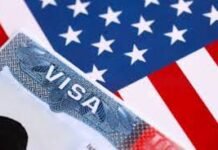The United States government has faulted Nigeria for the continued delay in approving import permits for American agricultural products, describing the situation as a longstanding trade barrier that has hindered access to the Nigerian market.
In its latest 2025 National Trade Estimate Report on Foreign Trade Barriers, the Office of the United States Trade Representative said that despite repeated efforts to secure market access, Nigeria had not acted on several pending requests concerning food and agricultural imports from the US.
However, the Nigeria Customs Service countered the claims by the United States government that the NCS still operates a largely manual system, describing the assertion as “unfair” and “misinformed.”
The US National Trade Estimate Report on Foreign Trade Barriers stated, “Since 2019, the United States has sought to negotiate import permits for the export of several categories of US food and agricultural products. Nigeria has been slow to approve these requests.”
The USTR noted that Nigeria’s weak capacity to review certificates, inspect goods, and conduct testing had contributed to long clearance delays, forcing many traders to rely on informal channels.
It also criticised Nigeria’s lack of consistency in applying sanitary and phytosanitary rules, saying this had created confusion among exporters.
“Nigeria is not consistent in the implementation of technical regulations and sanitary and phytosanitary measures, which can create confusion and undermine compliance,” it said.
The US government also took issue with Nigeria’s complex and restrictive import regime. It noted that while the country’s average Most-Favoured Nation applied tariff rate stood at 12 per cent in 2023, agricultural products attracted 15.9 per cent, and non-agricultural goods 11.4 per cent.
The report added that Nigeria imposes several supplementary charges that significantly raise the effective rate paid by importers.
“Nigeria maintains a combined duty plus other associated import fees of 50 per cent or more on 79 tariff lines. These include 17 tariff lines on which the combined duty plus other associated import fees reach or surpass the 70 per cent limit set by ECOWAS,” the report said.
It also criticised Nigeria’s continued import bans on 25 product categories, including poultry, beef, spaghetti, fruit juice in retail packs, used vehicles over 12 years old, soaps, and certain alcohols, describing them as barriers to trade.
“The Nigeria Customs Service continues to ban the import of 25 different product categories,” it added.
The report pointed to systemic problems in Nigeria’s customs administration, including corruption, manual processes, and inconsistent interpretation of trade rules.
“Importers report inconsistent application of customs regulations; lengthy clearance procedures, often due to outdated manual processing systems; and corruption,” the USTR stated.
![]()










